An incredible roguelike and fighting game pushed one of the biggest companies in vtubing to make its own game publisher, and now hololive's buried in over 50 ideas
Interview | hololive's gaming arm holo Indie hopes to put out around 10 games a year
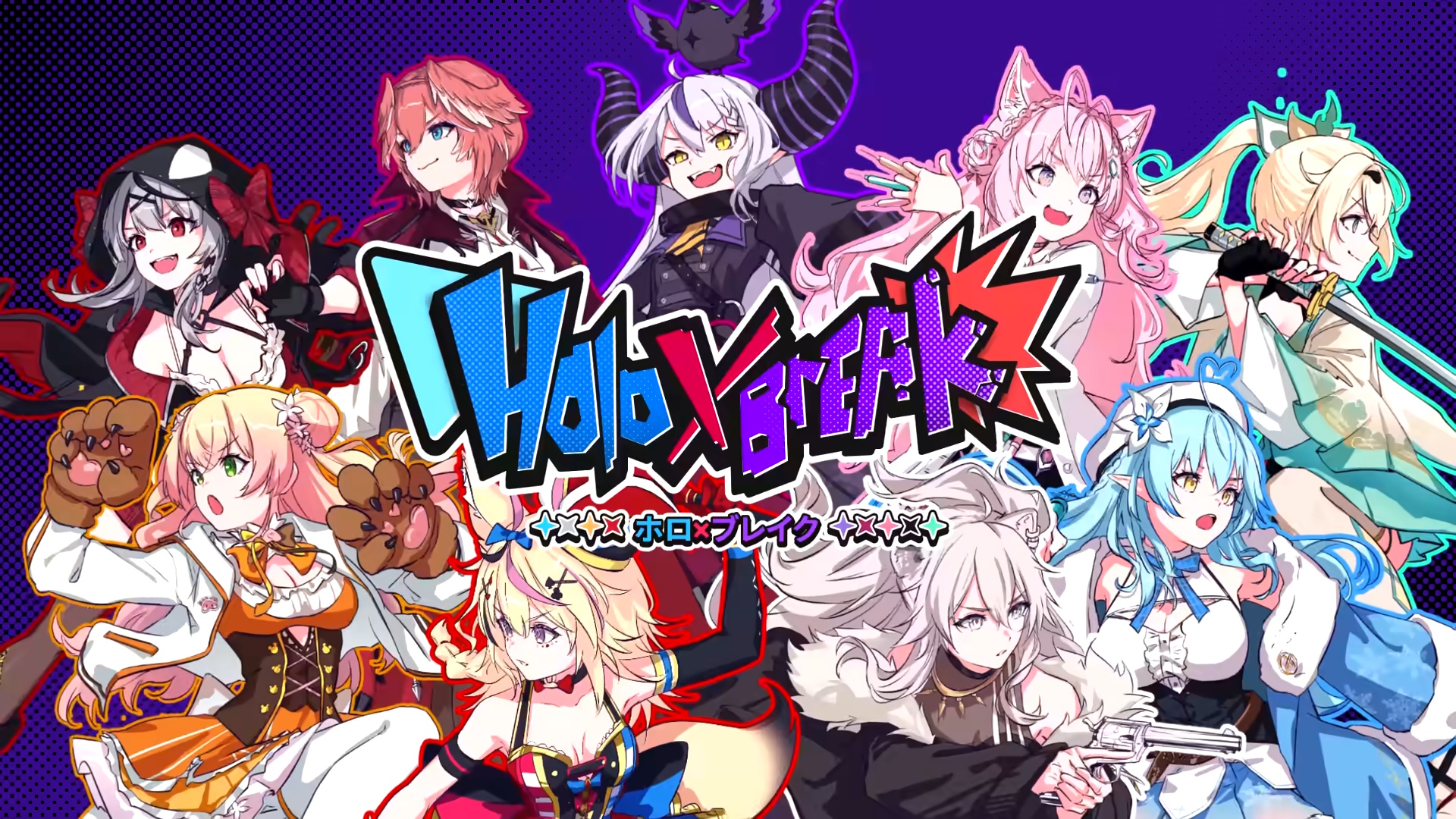
Confused historians will draw a line starting with one outspokenly horny animator making an unbelievably good roguelike and ending with one of the biggest companies in vtubing forming a gaming publisher. That's not the whole story, but the HoloCure to holo Indie pipeline is a critical part of hololive's latest unexpected intersection with games, and the resulting domino effect has been amazing to witness.
Vtubing is still a pretty wild and lawless scene, but a few large companies have emerged as major players. Hololive, of Japanese company COVER, is arguably the biggest – and now pretty handily the one with the biggest gaming presence. After the one-two punch of Vampire Survivors-style roguelike HoloCure: Save the Fans and incredible fighting game Idol Showdown, COVER officially established holo Indie last year as a way to support and scout fan games about hololive. Visibility was a big upside for partnered devs, and a rare chance to charge for derivative works often bound by fierce protections – just look at how companies like Nintendo treat fan games – only sweetened the deal.
HoloCure remains independent, but its lead developer worked with holo Indie on a separate game called Holo X Break. Idol Showdown has been retroactively folded in as well. The first new holo Indie release was an Age of War-like 2D tower defense game called HoloParade, which has done pretty well for itself at a price of just $4. Some holo Indie games are laser-targeted at fans of these specific streamers or vtubing as a whole, but others, especially HoloCure, are simply amazing games in a vacuum, and it's clear that plenty more are on the way.
As the dust settles on one of the strangest new publishers in games, I reached out to COVER to talk through holo Indie's launch and future ambitions, as well as how it's handling a flood of impassioned pitches from famously ravenous fans.
The following has been lightly edited for length and clarity.
The right roguelike in the right place
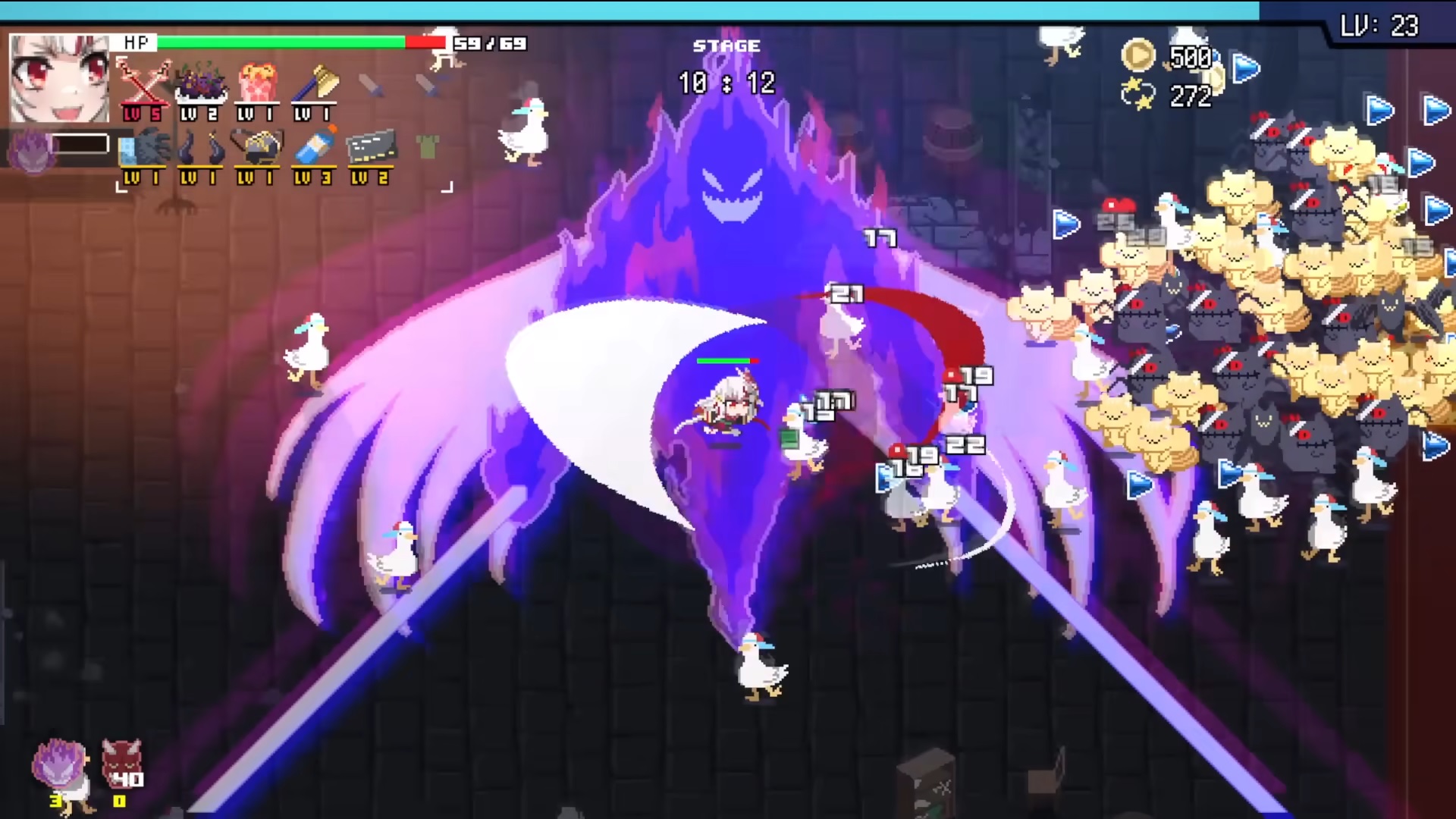
GamesRadar+: When and how did COVER become aware of HoloCure and its popularity, and at what point – perhaps with dozens of hololive talents loving the game – did it officially clear the bar internally that you were thinking, "We've gotta do something with this"?
holo Indie team: There was often discussion about the topic surrounding HoloCure and Idol Showdown. Soon after the release of HoloCure, as we observed the online reactions and the quality of the game, there was the first discussion about whether we should provide some form of official support as a company. Subsequently, with the release of Idol Showdown, it became more evident that we should form "holo Indie" (which didn't even have a name at the time) to support development.
Weekly digests, tales from the communities you love, and more
It feels like there are two potential audience goals here: releasing games that get people into hololive and cater to existing fans, or releasing games that are fun in a vacuum even for people who just like gaming but aren't interested in hololive or vtubing. HoloCure feels like the strongest example here. Not that any holo Indie game isn't or isn't meant to be fun, I'm just curious how you feel about games where people say, "you don't need to be a hololive fan to enjoy this."
Our top priority is giving back to game creators and developers, but I am very happy to hear that even those who are not fans of hololive production can enjoy it, as it can serve as an opportunity for people who do not know hololive to learn more about the hololive production IP.
While we can’t disclose the details of the evaluation process, I can say that we evaluate various aspects comprehensively with multiple people, on points such as a creator’s love and passion for hololive production, understanding of the IP, as well as quantity and quality of game content. In the future, in addition to targeting both types of customers mentioned above, there may be game(s) that target only one of them.
We're starting to see more holo Indie games that focus specifically on one hololive talent: WOWOWOW KORONE BOX and Miko in Maguma speak for themselves, whereas games like HoloCure, Holo X Break, and Holo Parade feature a range of talents in more well-known genres. Is this just up to what people want to make, or is holo Indie actively looking to curate games that showcase a range of talents?
We would like to prioritize what the creator / developer wants to create as much as possible, within the limits of not going against the Derivative Works Guidelines or the IP of hololive production. Of course, we also want to feature as many members as possible, but currently we are not specifying anything from our end and leaving it to the discretion of the creators / developers.
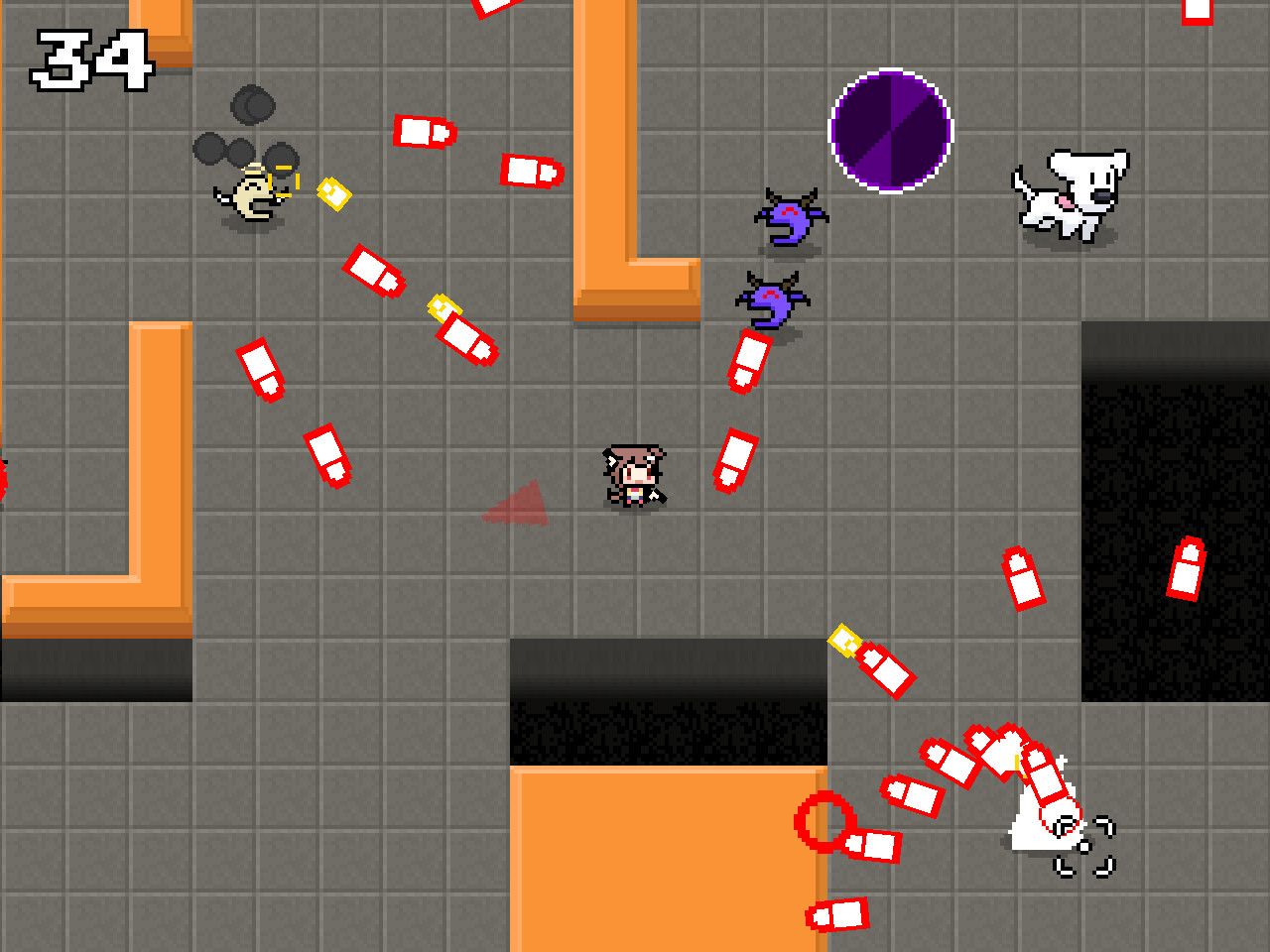
Have any hololive talents played a part in the formation or direction of holo Indie? I know some are more active gamers than others, and I'm curious whether their input ever had a significant impact when COVER was looking to form its own game publisher. Have they been vocal or at all involved in holo Indie discussions or game selection?
Of course, the members of hololive production were key in establishing holo Indie, which revolves around the IP of hololive production. Through the game commentary of various talents and them streaming holo Indie games, it becomes possible to have closer communication with fans and game creators / developers. For talents, it can be turned into stream content, and game developers gain recognition through talent streams. It also creates an environment where fans can enjoy watching entertaining content.
Since holo Indie strictly maintains the rules of Derivative Works Guidelines, we do not conduct talent confirmation during the screening process. However, we carefully review with the holo Indie staff to ensure that expressions or portrayals that could potentially damage the branding and image of talents are not included in the games.
When a game is approved and released via holo Indie, is it directly shared with the Hololive talents as a potential game for them to stream? I can only assume we'll see Korone stream WOWOWOW KORONE BOX, for instance. (Update: Korone did, in fact, stream it.)
Games, including those under the holo Indie label, will be shared with the members of hololive production upon obtaining distribution licenses and permits. However, it's ultimately up to the talents to decide whether or not to play and stream them. As holo Indie, we believe it's crucial to collaborate with developers to create games that pique the interest of hololive production members.
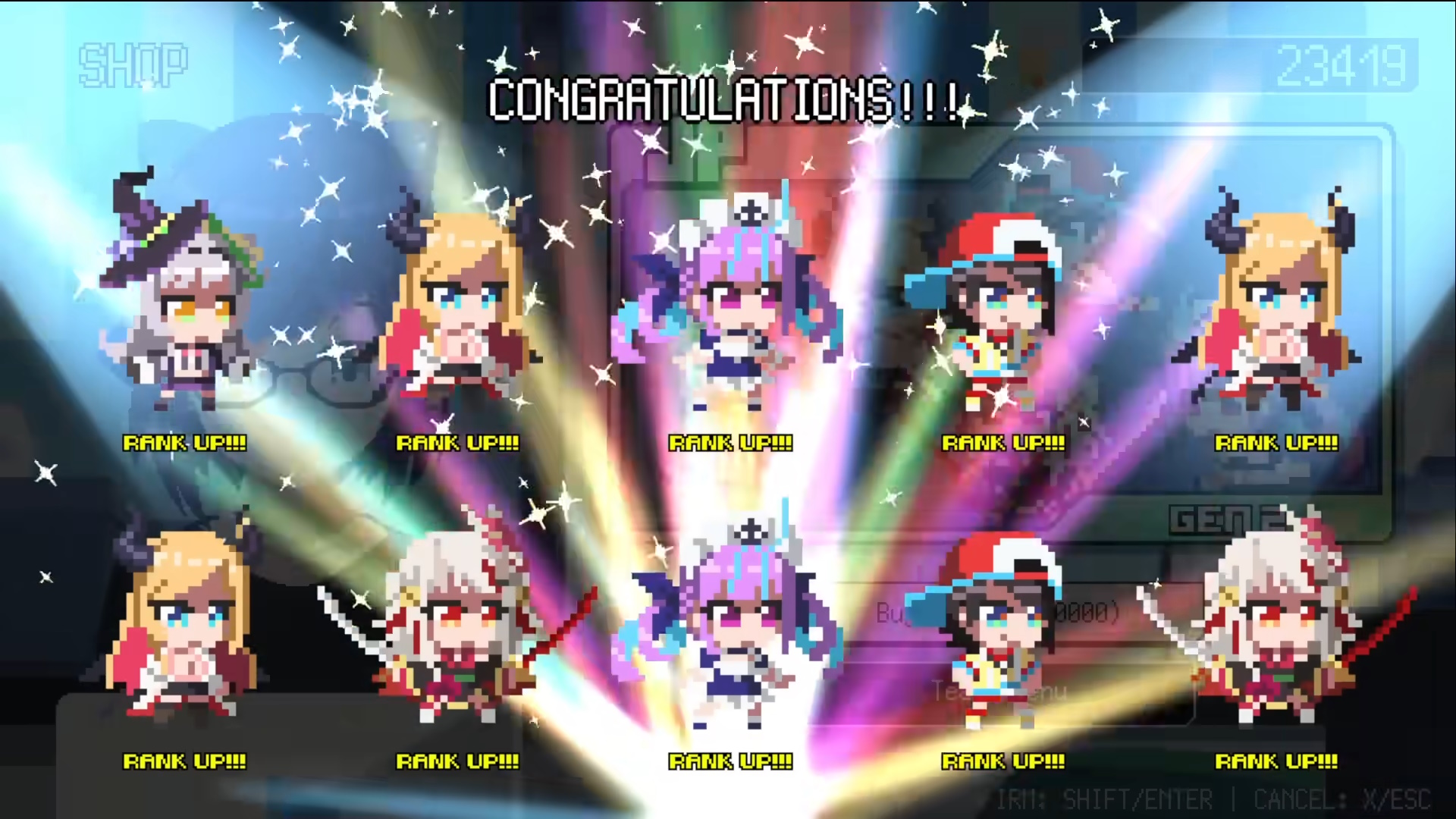
Apart from Holo Parade, all holo Indie releases thus far have been free games. One of the details that initially grabbed me about this publishing label was the opportunity for fan game creators / developers to officially monetize, so I'm curious about the discussions on pricing. Has the decision to release these games for free been a developer-side decision?
We discuss with holo Indie creators / developers regarding whether to release the game for free or at a cost, and determining the price. In determining the price, we propose suggestions based on the branding of holo Indie, considering factors such as other released games and volume.
We recognize that enabling fan game creators / developers to monetize their creations is a new initiative for us. Balancing the protection of our intellectual property as a company with our approach to fan-created content is a challenging issue. While fan creations can spread awareness and enhance the appeal of our IP, they also have the potential to harm fans or even members of the hololive production.
While it may be difficult to provide clear production guidelines as it could burden creators / developers, we want to collaborate in expanding the potential for monetizing fan creations while also being mindful of potential risks.
Why do you think so many holo Indie devs have opted for free-to-play? Has holo Indie ever encouraged devs to put a price on their games, even a small one like Holo Parade's?
The creators / developers are enthusiastic fans who create for the fans and want fans and talents to play. From what we assume, the lack of prior agreements within the developer groups may affect the decision to monetize secondary creative games developed by multiple people prior to the announcement of holo Indie. In the near future, we anticipate an increase in applications for paid games for games that are worked on after the announcement of holo Indie.
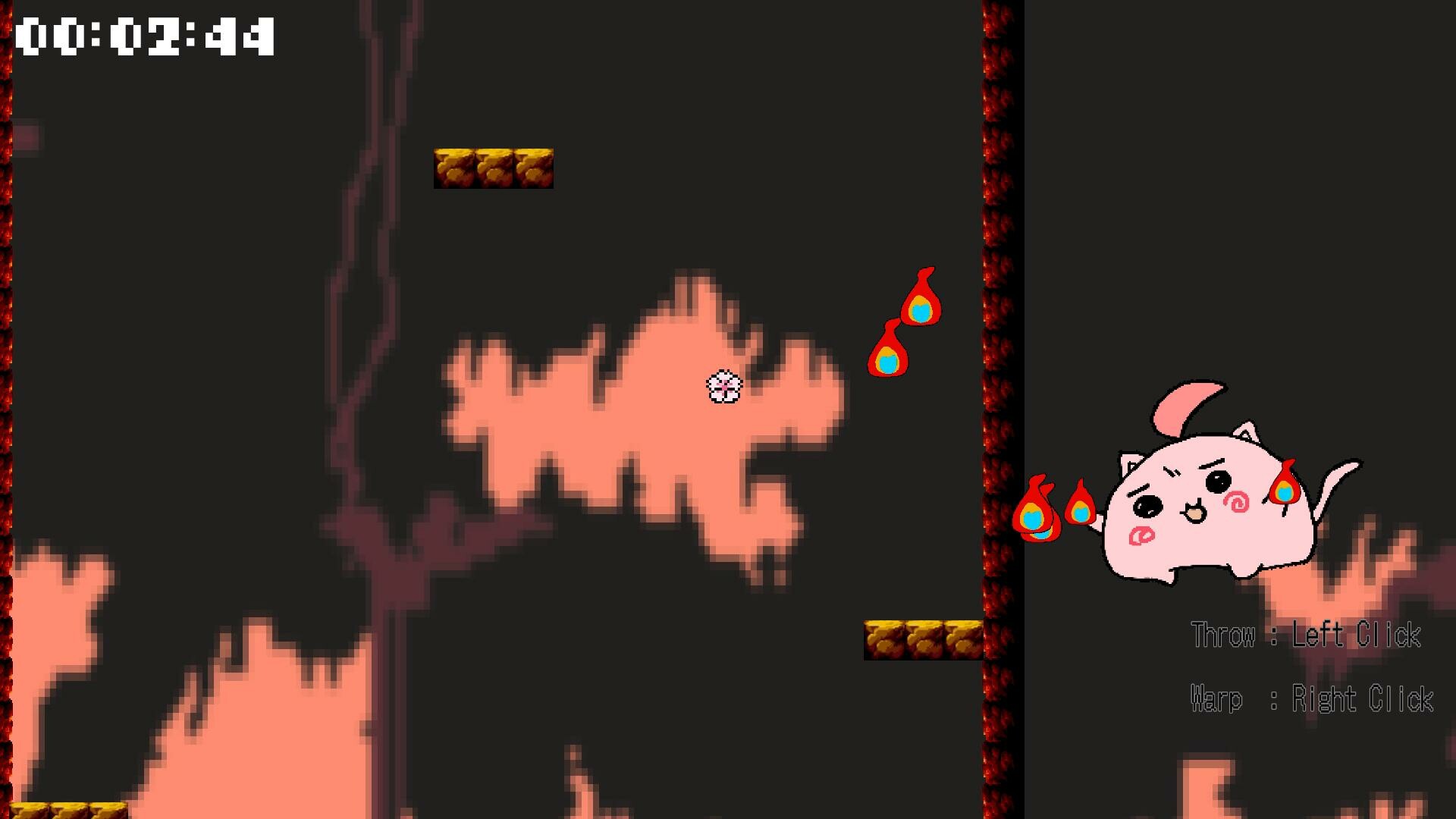
My read of the pricing model leaning toward free and cheap is that accessibility and audience reach matters more than up-front sales. Is that accurate?
We want everyone to become familiar with the holo Indie brand. By exposing both hololive fans and fan game creators / developers to holo Indie, we aim to communicate its appeal and increase awareness, as well as future submissions.
However, to sustain holo Indie in the long term, we are not opposed to the idea of developing paid products. Moving forward, we will continue to discuss with creators / developers and explore opportunities for paid releases, with the aim of giving back to the creators.
Considering that many creators / developers operate with small teams, we see the lower price range as the volume zone. However, we also welcome submissions for titles targeting higher price ranges.
Are creators / developers of holo Indie-published free games compensated in another way, since there's obviously no up-front sales revenue?
Since most games are created by the fan community, no financial compensation is provided for free games. However, for paid titles, we return the majority of the revenue to the creators / developers.
We're up to five official holo Indie games at this stage. Can you speak to how many pitches you've received, and the pace you work through them?
We cannot disclose the exact number of proposals, but we have received at least 50 proposals so far. Due to receiving many more submissions than initially anticipated, the evaluation and review of post-announcement title applications is taking longer than expected.
The duration of the review period varies significantly depending on factors such as the genre and content of the games, as well as any additional considerations that may arise. Therefore, it's difficult to specify. On average, it takes approximately one to three months from passing the review to completing the game and releasing it.
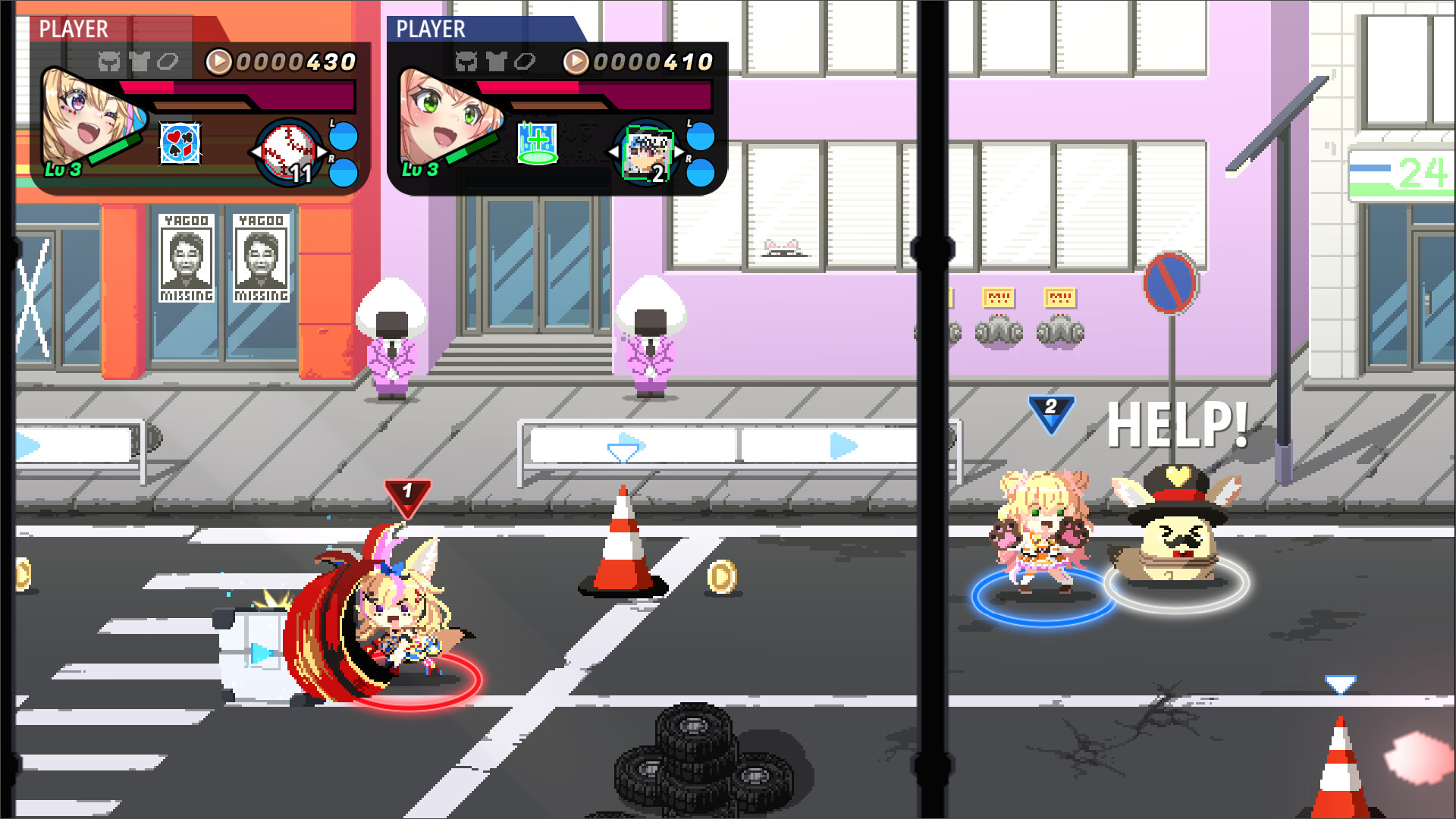
Once a pitch is accepted, how does holo Indie interact with game creators / developers on the road to release? What's the rapport, assistance, and oversight like there?
After the pitch is accepted, we request adjustments necessary to release under holo Indie. Following that, we collaborate with the creators / developers to plan when the game should be released, based on the existing release schedule and small details.
We consider understanding of the hololive production IP, consideration and care for the talents, and the utilization of memes from streams to be crucial
holo Indie team
Can you speak to how many games holo Indie plans to release on a yearly basis?
This is not a guarantee, but we aim to release around 10 titles annually.
Has Holo Indie approached creators / developers with game pitches first, or are you on the receiving end and choosing specific fan games from a sea of ideas?
We are conducting evaluations from among many applications. In the future, we are also considering reaching out to creators / developers who are creating amazing works.
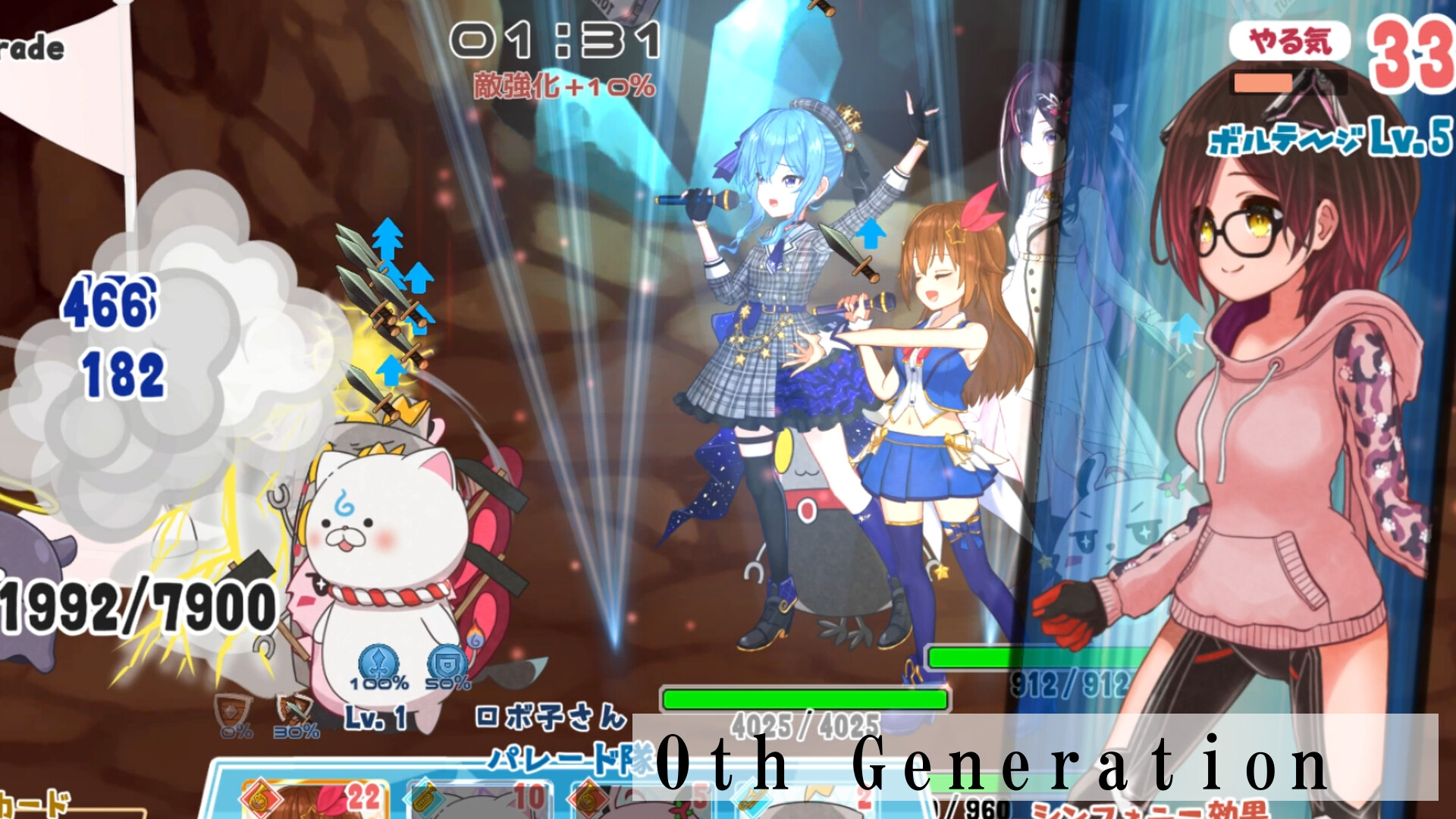
What do you look for in a game pitch, expanding on the message that what matters most is a love for hololive?
The most important factor for us remains consistent: a deep love and passion for hololive production.
While it's challenging to provide a specific explanation, we consider understanding of the hololive production IP, consideration and care for the talents, and the utilization of memes from streams to be crucial. Furthermore, it's important to us that creators / developers show love and respect towards the fan community, aiming to be accepted by as many hololive production fans as possible.
It's essential to note that just because someone doesn't pass the evaluation doesn't mean they lack love and passion. Sometimes a developer’s vision for a game may not align with our key points of focus. During evaluations, we carefully consider these factors.
Is COVER looking to one day form a bespoke internal game development team, perhaps by recruiting some holo Indie contributors or just building on that experience?
We still can't clearly imagine what the future holds. Our first step is to exchange opinions with creators / developers and establish the framework for the holo Indie project, which has just begun.
Here are some of the biggest upcoming indie games of 2024 and beyond.

Austin has been a game journalist for 12 years, having freelanced for the likes of PC Gamer, Eurogamer, IGN, Sports Illustrated, and more while finishing his journalism degree. He's been with GamesRadar+ since 2019. They've yet to realize his position is a cover for his career-spanning Destiny column, and he's kept the ruse going with a lot of news and the occasional feature, all while playing as many roguelikes as possible.


